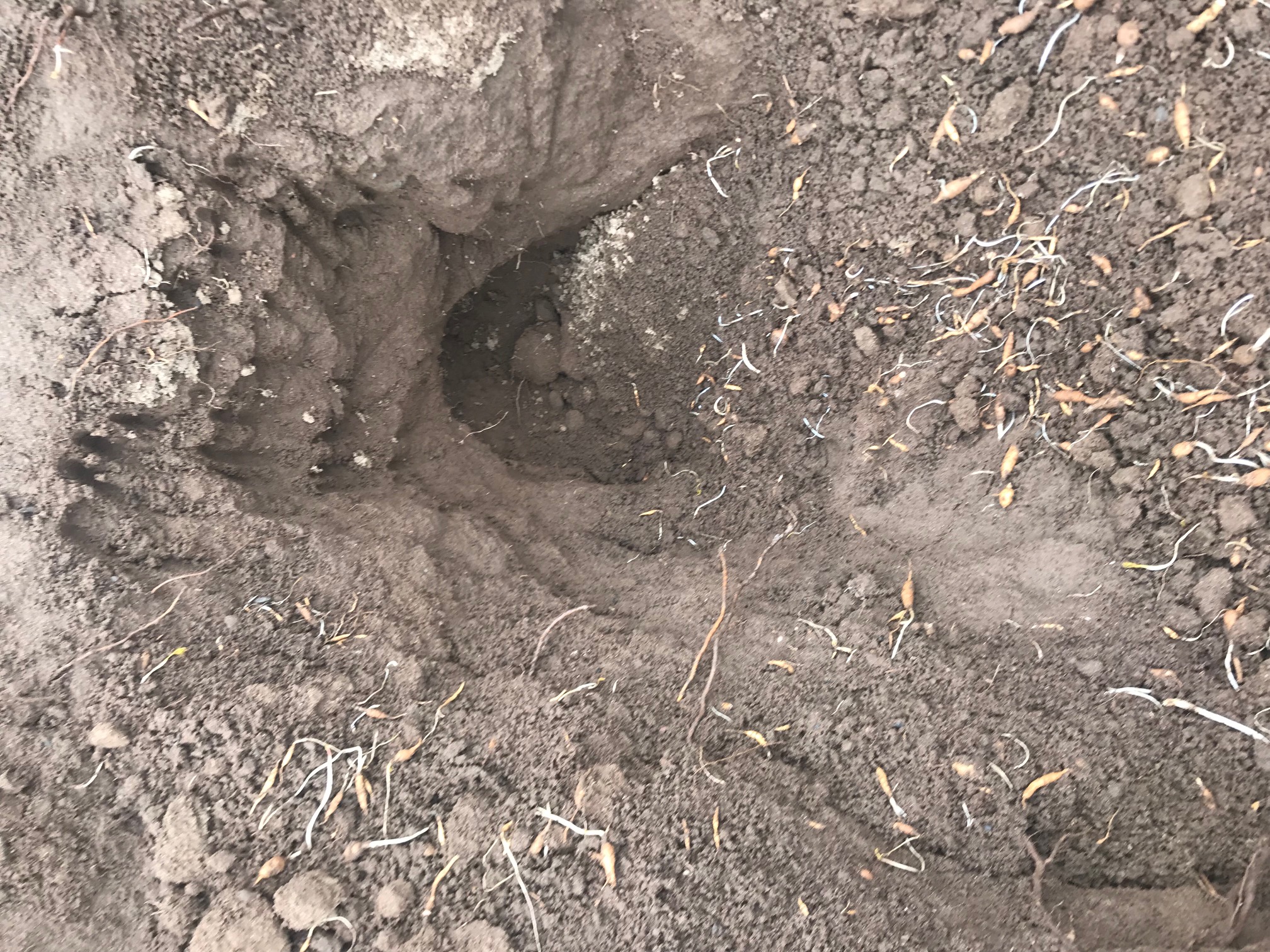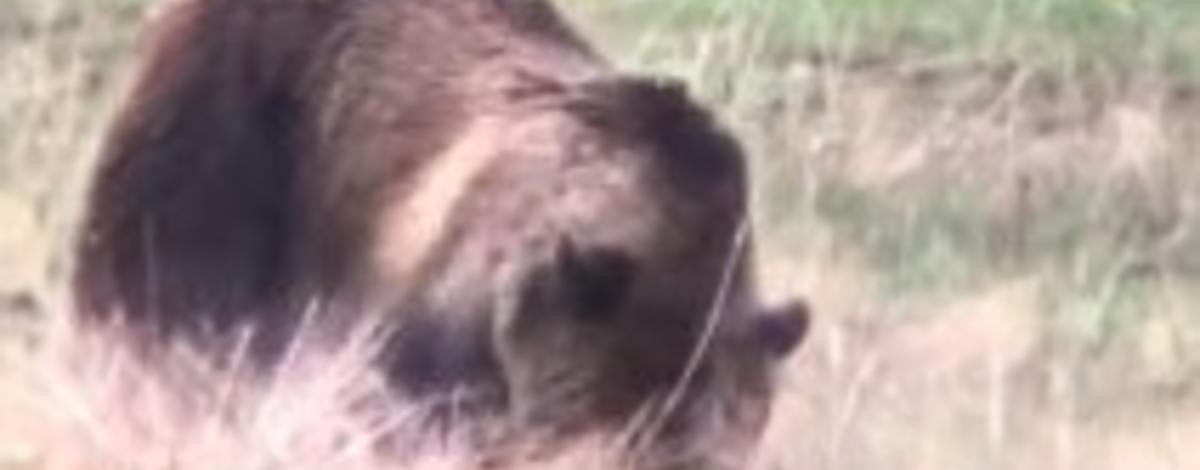A female grizzly with cubs was observed digging gopher caches near Harriman State Park May 14. This is the third year in a row bears have been observed in this location and is likely the same mother grizzly returning to a known food source. “The sow put her legendary grizzly strength to use and made quick work of the soft soil,” says Jeremy Nicholson a bear biologist with Fish and Game. “She dug up multiple caches as her cubs watched and joined in.”
When bears emerge from their dens after months of slumber they are hungry and looking for food. Though food can be in short supply this time of year, bears are opportunistic feeders and will make a meal out of almost anything. “One of the first food items grizzly bears seek when they wake are pocket gophers,” says Nicholson. “Grizzlies will make a meal of a gopher if they get the opportunity, but they are primarily looking for roots and tubers buried by the gopher."

“It was a unique experience getting to watch these bears exhibit natural behavior so close to our community in Island Park,” expressed Nicholson. “It was also a reminder that we need to properly store garbage and other attractants when we live in bear country.” To reduce the likelihood of unwanted bear encounters and possible harm to both humans and bears, those living in bear country should follow these guidelines:
- Garbage should be stored inside the house or in a secure garage or storage building.
- If garbage cannot be stored in a secure location, a bear resistant container approved by the Interagency Bear Committee is recommended. Please visit http://igbconline.org/bear-resistant-products/ for more information. Check with your local waste removal service to see if they have bear resistant cans available.
- Avoid using bird feeders from March through November. Birds do not need supplemental feeding this time of year.
- Pet food should not be left outside.
- BBQ grills or anything with a strong odor should not be left out at night.
- Protect gardens, beehives, and compost piles with electric fencing.
- Never intentionally feed bears. A food conditioned bear may pose a threat to human safety and usually results in the removal of the bear.
“If you observe a bear or have a bear conflict, we want to hear about it,” says Nicholson. “We are particularly interested in receiving reports of conflicts because the earlier we hear about them, the more likely we can resolve the problem before the situation escalates.”
To report a bear sighting or conflict in Idaho, please contact Fish and Game staff using the provided information below or by contacting the Upper Snake Regional Office at (208) 525-7290.
Jeremy Nicholson – Bear Biologist
Office Phone: (208) 558-4215
Cell Phone: (919) 538-5561
Email: jeremy.nicholson@idfg.idaho.gov
Kyle Garrett – Senior Bear Technician
Cell Phone: (801) 560-9806
Email: kyle.garrett@idfg.idaho.gov

